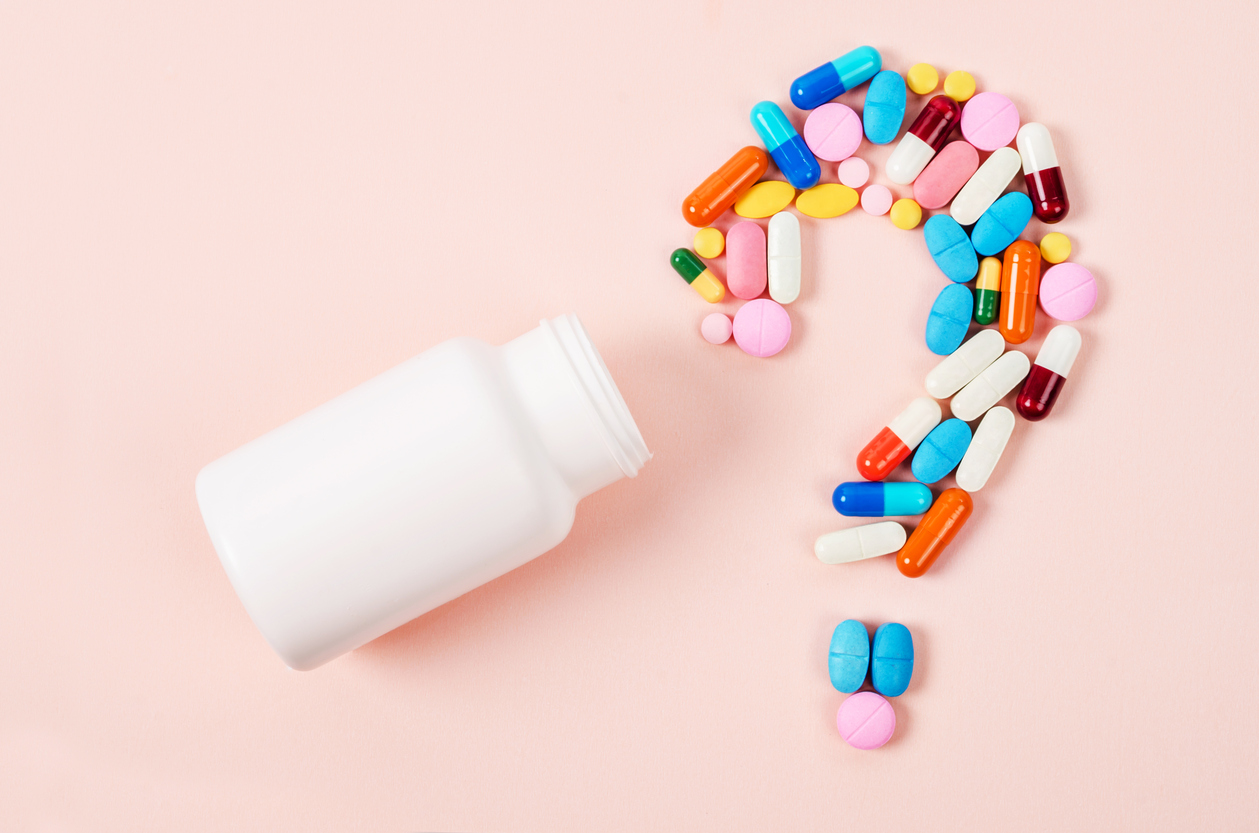Flu Symptoms? Over a third of us are still demanding antibiotics from our doctors when we don’t need them, which not only contributes to antibiotic resistance, it could be compromising your own immune system. Editor Anna Magee reports
Whether it’s that pesky sore throat that keeps coming back or the sinus infection that seems to have plagued you since forever, the chances are that if you’re sick enough to see your GP, you want he/she to do something about it.
The truth is, in most cases, there’s little they can do but offer you the same advice that your pharmacist would – rest, drink tea and chicken soup (pumpkin or cauliflower if you’re vegan) and wait for it to get better on its own.
But a new report from the UK’s medical watchdog Public Health England (PHE) has found that 38 per cent of people still expect an antibiotic from their GPs when they visit with a cough, flu or a throat, ear, sinus or chest infection in 2017.
Antibiotics are essential to treat serious bacterial infections, but they are still being frequently used to treat illnesses such as coughs, earache and sore throats which can get better by themselves, the PHE report states.
‘Taking antibiotics encourages harmful bacteria to become resistant – that means that antibiotics may not work when you really need them.’
This isn’t only a problem for each of us as individuals, but increases the huge global issue of antibiotic resistance, now being hailed as a medical emergency.
As a result of a striking number of us still taking antibiotics when we don’t need them, the issue of antibiotic resistance is set to become an even bigger public health issue.
While antibiotic resistant superbugs rose by a staggering 35 per cent in the last four years, PHE now estimates that over three million common surgical procedures including caesarean sections as well as hip and knee replacements, and cancer treatments could become life threatening without antibiotics if they no longer work.
But antibiotics also affect us as individuals through damaging our own gut bacteria.
‘Taking antibiotics encourages harmful bacteria to become resistant – that means that antibiotics may not work when you really need them.’

What effects do antibiotics have on your gut?
‘A course of antibiotics literally kill off all the healthy bacteria in your gut in order to eliminate the ‘bad’ bacterial pathogen that is causing your infection,’ says nutritionist Katherine Pardo.
‘This is especially the case with broad spectrum antibiotics such as penicillin and amoxycillin that are routinely prescribed when they’re really unnecessary.’
The result she explains is annihilation of the beneficial bacteria in your gut along with any bad bacteria causing the problem.
In fact, according to one report, broad spectrum antibiotic prescriptions increased by about a third from 2000 to 2014 but have indeed decreased slightly in 2016.
‘If you take antibiotics on a fairly regular basis, you will indeed damage your gut bacteria,’ Pardo explains.
How taking antibiotics when you don’t need them messes with your immune system
‘There are a lot of immune cells in the gut to protect you from ingesting things which could cause disease of be pathogenic,’ says Pardo.
‘Obviously by swallowing food from the environment, you’re exposing yourself to lots of external microbes which wouldn’t be healthy if ingested into the body..Your immune system is very active in your gut to prevent microbes and unwanted substances from the outside world from entering your bloodstream.’
Your gut wall houses around 70 per cent of the cells that make up your immune system. These cells, known as ‘Peyer’s patches’ protect the mucous membranes of the small intestines against infections by releasing white blood cells known as T- and B- cells.
‘If you take even one course of antibiotics, let alone repeated courses every time you have a minor cold, you’re wiping out the healthy bacteria in your gut’
This is where the healthy bacteria in your gut comes in, because such good bacteria can activate B cells to divide and multiply and these cells help to fight harmful viruses and bacteria that enter the GI tract.
‘If you take even one course of antibiotics, let alone repeated courses every time you have a minor cold, you’re wiping out the healthy bacteria in your gut, leaving an environment in your gut where the bad bacteria can flourish and keep any good bacteria from growing.’
That can then become a vicious cycle. You’re taking antibiotics for the slightest reason, weakening your immune system as a result and then getting more coughs and colds that don’t seem to go away.

Get your gut bacteria back in order after antibiotics
There’s a reason even doctors now recommend taking a course of probiotics if you’re taking – or have ever taken – antibiotics, to help re-colonise the good bacteria in your gut that the antibiotics might have nuked.
Make sure your choice of probiotic is one that is proven to have beneficial effects for the reason you’re taking it.
Probiotics are not all the same but come in different strains, that work for different problems. One for example might be better for problems such as Irritable Bowel Syndrome (IBS) while another will have been proven effective in helping urinary tract infections (UTIs).
‘If you’re taking antibiotics, look for a probiotic that has been specifically shown to minimise disruption of gut bacteria during antibiotic use,’ says Pardo.
‘A gut-friendly lifestyle involves avoiding antibiotics wherever possible’
A 2009 placebo-controlled study investigated the capacity of a probiotic mixture to minimise the disruption of the intestinal microbiota in people on antibiotics (amoxicillin and clavulanic acid).
The research, published in The Journal of Medical Microbiology found that a mixture of the strains, B. lactis Bi-04, B. Lactis Bi-07, L. acidophilus NCFM, L. paracasei Lpc-37 and Bifidobacterium bifidum Bb-02, minimised the disruption of good bacteria in the guts of those taking it, along with their antibiotics.
The researchers concluded that the study provided a ‘possible mechanism whereby probiotics limit GI adverse effects associated with antibiotics.’
All four of these strains are found in Nutri Advanced Ultra Probioplex Duo £28 (30 capsules).
When you’re choosing a probiotic, Pardo suggests checking the strain you’re buying. ‘The strain is the number or letters at the end, for example Lactobacillus paracasei Lpc-37. Then, check research to see the strain you’re buying has been proven to help whatever you’re taking it for.
‘Look also for ‘live organisms guaranteed at expiry date,’ says Pardo. ‘Some companies only guarantee the presence of live organisms to date of manufacture. If you’re buying the probiotics a year or more from manufacture, you could be paying for something that is in effect useless, unless the viability and stability of the organisms can be guaranteed.’
Now, get a gut-friendly daily lifestyle
To keep your microbiome functioning well you need to have an overall gut-friendly lifestyle which includes, dealing with stress, minimising processed food and sugar intake and doing moderate exercise in which you break a sweat five times a week.
It also involves avoiding antibiotics wherever possible, so that when you really, really need them, they will work.
‘Taking a high strength probiotic daily, as well as eating lots of prebiotic foods which act like a fertiliser, encouraging the good bacteria to grow are all essentials of a gut-friendly lifestyle,’ says Pardo.

Prebiotic foods include a wide range of fruits and vegetables including bananas and artichokes, as well as legumes and bone broths.
Other proven ways to help your immune system along include washing your hands often, with warm water and soap, exercising regularly, eating a diet rich in multi-coloured fruits and vegetables, getting enough sleep and supplementing with vitamin D if you are not exposed to regular sunshine.
Related Healthista Content:
How taking probiotics could improve your gut health
Can berry powders help boost your immune system?
41 natural cold and flu remedies these health experts swear by
